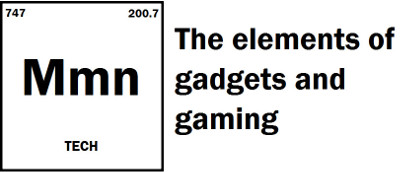

What the heck is 5G, and why are people so scared of it?
You’ve probably seen reports in the news lately of people setting “5G” towers on fire. Something about this technology has gotten a lot of folks spooked, especially the fringe theorists among us. With far ranging claims from it spying on you, to cooking your brain, to spreading the CCPVirus. So what the heck is 5G anyway, and are any of these concerns even valid?
Well, for starters 5G is a next generation mobile phone standard meant to replace LTE. Cellular providers have just started rolling it out across parts of the United States and Canada, with a small number of high end handsets launching to support it.
From a technical standpoint, 5G runs between 2.4 and 4.6 GHz, and can provide mobile data speeds up to 400mbps. That’s four times the speed of LTE. Some tests in the lab have even gone up to gigabit speeds under ideal conditions. That’s ludicrously fast for wireless. Plus, due to the high frequency band it operates in, it’s finally positioning cellular to rival conventional copper and fibre networks. Something which will be a huge deal for rural areas, where wired connections are often cost prohibitive.
This all sounds pretty great, so why would anybody be so strongly opposed to it. Well, the going concern with 5G expansion is that almost all the hardware is being provided by Chinese tech firm Huawei. Like many large conglomerates on the mainland, the company’s leadership has direct ties to the Chinese Communist Party (CCP).
Huawei in particular has been embroiled in several controversies recently. Namely, they are alleged to have stolen intellectual property from US and Canadian tech firms. Going as far as causing an international incident between the Canadian and Chinese governments after the former arrested one of the company’s officials for spying.
International relations between the People’s Republic of China, and, let’s be real here, most of the world, were cooling even before the recent pandemic. Namely due to the current dictator Xi Jinping’s saber rattling in Hong Kong and the South China Sea. Which has many US allies, and even other communist countries, worried about their ambitions, and questioning their intentions.
This has led to concerns that China could use its monopoly on 5G technology as a mechanism for spying on officials and citizens in rival nations. Which isn’t so far fetched when you think about it. Heck, they already use technology to spy on and control their own citizens. So there’s nothing really stopping them from doing the same thing abroad. Odds are good that they’re already doing so are without 5G. But it would certainly add another tool in the arsenal.
This is one of the many reasons behind the recent trade war between the United States and China. Many Huawei products have already been banned for use by government officials over security concerns. It’s not likely fears will be eased anytime soon either, given China’s culpability in COVID-19 and its decision to withhold medical supplies from some nations.
So what about the other concerns about 5G supposedly cooking your brain? Well, those are at best a fringe theory that has been repeatedly debunked. The waves propagated by cellular towers are too low power and at too low a frequency to do any damage to living tissue. No more so that putting your face up to the glass of a microwave oven to watch your popcorn pop.
In order to cause cancer, electromagnetic waves need to be ionizing. Meaning that they have enough energy to knock electrons off atoms. The only forms of radiation with enough power and a high enough frequency are ultraviolet light, X-Rays, and gamma rays. All radio waves are non-ionizing, and will not cause cancer. Nor will they cook you inside out unless you’re stupid enough to climb the tower and stick your head inside. Other health claims like the waves somehow messing with your brain signals are also not supported by science.
So yes, there are some legitimate concerns, but they’re geo-political rather than medical.
Feature Image: Some cooked brains, by Benreis via Wiki Commons. Licensed under GNU.


